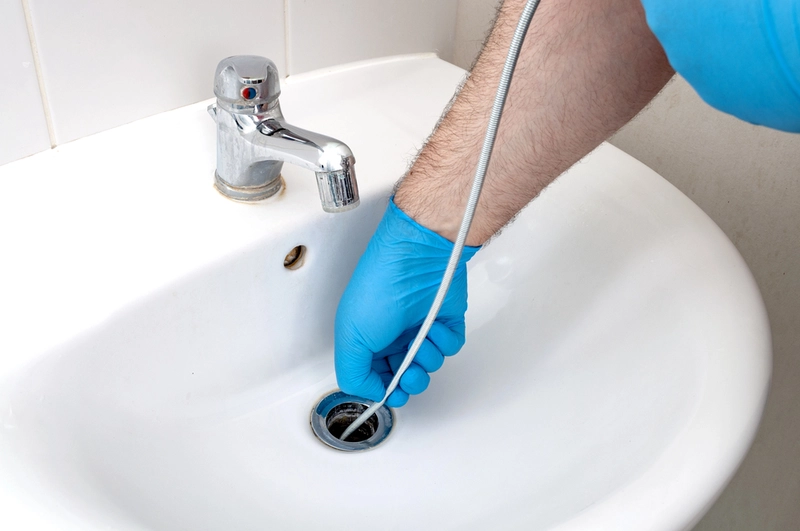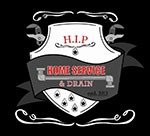Clogged drains are one of the most common plumbing problems homeowners face. A slow or blocked drain can lead to unpleasant odors, standing water, and even costly plumbing repairs if not addressed properly. The good news is that many clogs can be prevented with simple habits and regular maintenance.
This guide explores the most common causes of drain blockages, the best ways to prevent clogs, and effective solutions for keeping your drains flowing smoothly.

Common Causes of Clogged Drains
Understanding what causes drain clogs can help you take proactive measures to prevent them. Some of the most common culprits include:
Hair Buildup
Hair is one of the leading causes of clogs in bathroom drains. Over time, strands of hair collect inside pipes, forming tangled masses that trap soap and other debris.
Soap Scum
Soap residue builds up inside pipes, reducing water flow. This issue is particularly common in hard water areas where minerals in the water react with soap, creating a sticky buildup.
Grease and Food Waste
Kitchen sinks often become clogged due to grease, oil, and food particles. Grease solidifies as it cools, coating the inside of pipes and trapping food debris.
Foreign Objects
Items such as wipes, paper towels, feminine hygiene products, and cotton swabs do not break down like toilet paper and can quickly block pipes. Even “flushable” wipes can lead to plumbing issues over time.
Tree Roots
Outdoor drains and sewer lines can become blocked by tree roots that grow into pipes in search of water. These roots can cause serious plumbing problems and often require professional removal.
Mineral Buildup
In areas with hard water, minerals such as calcium and magnesium accumulate inside pipes, restricting water flow and leading to blockages.
Simple Habits to Prevent Clogged Drains
While some blockages are unavoidable, many can be prevented by following a few simple practices.
Use Drain Screens
Installing drain screens over sink and shower drains helps catch hair, food particles, and other debris before they enter your plumbing system.
Dispose of Grease Properly
Never pour grease or oil down the drain. Instead, allow it to cool and dispose of it in the trash. For large amounts of cooking oil, collect it in a container and take it to a local recycling center.
Be Mindful of What You Flush
Toilets are designed for human waste and toilet paper only. Avoid flushing wipes, paper towels, cotton swabs, or hygiene products, even if they are labeled as flushable.
Rinse Drains with Hot Water
Running hot water down your sink after washing dishes helps dissolve soap scum and grease, reducing buildup inside the pipes.
Clean Drains Regularly
Using natural cleaners such as baking soda and vinegar can help prevent buildup and keep drains clear. Pour half a cup of baking soda down the drain, followed by half a cup of vinegar. Let it sit for a few minutes before flushing with hot water.
Limit Garbage Disposal Use
Although garbage disposals can break down food waste, they are not designed to handle all types of food. Avoid putting eggshells, coffee grounds, fibrous vegetables, or large food scraps into the disposal.
Professional Drain Cleaning and Maintenance
Even with proper care, drains may still develop buildup over time. Scheduling regular professional drain cleaning can help prevent severe blockages and extend the lifespan of your plumbing system.
Benefits of Professional Drain Cleaning
- Removes stubborn clogs and buildup
- Prevents foul odors from forming in pipes
- Reduces the risk of major plumbing emergencies
- Improves water flow and drainage efficiency
When to Call a Plumber
If you notice slow drainage, frequent clogs, gurgling sounds, or foul smells coming from your drains, it may be time to call a professional plumber. Hydro jetting and specialized drain cleaning tools can remove deep blockages that household methods cannot fix.
Final Thoughts
Preventing clogged drains requires a combination of good habits, regular maintenance, and occasional professional cleaning. By being mindful of what goes down your drains and taking proactive steps to keep pipes clear, you can avoid costly plumbing repairs and ensure your home’s plumbing system functions smoothly. If you experience persistent drainage issues, consulting a professional plumber can provide long-term solutions to keep your drains flowing freely.

